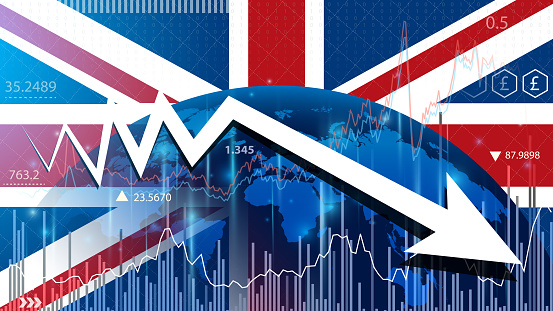Digital Zeitgeist – The Inflation Rate In The UK Has Dropped For The Third Consecutive Month Although It Is Still Very Close To 40-Year High
Inflation in the UK decreased for the third consecutive month in January, but the rate nevertheless remained in double digits. This is due to the fact that the cost of living is still at one of the highest levels in the last four decades.
In January, inflation was somewhat lower than the previous month, coming in at 10.1%, down from 10.5%. After reaching a 41-year high of 11.1% in October, this is the most recent indicator suggesting inflation may have peaked in the UK.
The rate of inflation measures the rate of increase or decrease in prices of goods and services over a period of one year. For instance, if something cost £1 a year ago and the rate of inflation is 10%, the price of that same product would be £1.10 right now.
Grant Fitzner, chief economist for the ONS, said: “Although still at a high level, inflation eased again in January.
“This was driven by the price of air and coach travel dropping back after last month’s steep rise.
“Petrol prices continue to fall and there was a dip in restaurant, café, and takeaway prices.
“The cost of furniture decreased by more than this time last year, in line with traditional New Year discounting. These were offset by rising prices for alcohol and tobacco, following on from seasonal price cuts in December and a more subdued rise at the same time last year.
He added: “There are further indications that costs facing businesses are rising more slowly, driven by falls in crude oil, electricity and petroleum prices.
“However, business prices remain high overall, particularly for steel and food products.”
Responding to the figures Chancellor Jeremy Hunt said: “While any fall in inflation is welcome, the fight is far from over.
“High inflation strangles growth and causes pain for families and businesses – that’s why we must stick to the plan – halve inflation this year, reduce debt and grow the economy.”
The Chief Executive Officer of the British Retail Consortium, Helen Dickinson, expressed concern that households are still being squeezed by high prices.
She said: “While inflation eased for the third month in a row, households are still being squeezed by high prices. The cost of food remains elevated, with the ripple effect from the war in Ukraine pushing up the price of food due to the knock-on increases from high fertiliser and energy prices. So as Christmas discounts faded away, households will have felt the pressure in their weekly grocery shop.
“Despite this, consumers were offered some relief, as the prices of petrol and diesel fell. In addition, clothing and footwear inflation eased as retailers offered bigger discounts in the January sales. Retailers remain committed to doing everything they can to keep the price of essentials low for consumers, expanding value ranges and offering discounts for vulnerable groups.”
The most recent information from the ONS reduces the amount of pressure placed on the Bank of England to boost interest rates aggressively. This would provide some semblance of relief to borrowers following a string of 10 consecutive rate increases over the course of the previous 18 months.
“With mortgage rates also easing from their October highs and more fixed-rate deals under 4% now emerging, the hope is that rates could drop back further as competition for business heats up,” said Alice Haine, a personal finance expert at Bestinvest.
“Borrowers that have already locked in a new product in recent weeks may even want to consider contacting their broker again to see if it is possible to negotiate a fresh deal. But the ultra-cautious might want to hold off a little longer to see if rates come down any further.”
The Governor of the Bank of England, Andrew Bailey, recently stated that there has been a “turning of the corner” on inflation in recent months due to falling fuel prices and the easing of supply chain issues. The Bank of England predicted that CPI will fall this year, and Governor Bailey made this statement. Despite this, inflation is still significantly higher than the Bank of England’s target of 2%.
online sources: uk.finance.yahoo.com, ons.gov.uk, brc.org.uk, bestinvest.co.uk

